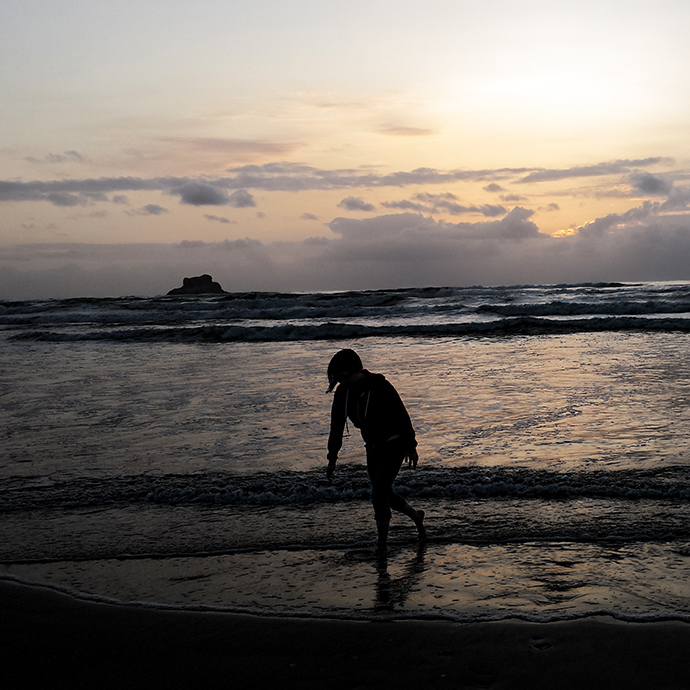How They Met
10.10.14

They met on the train from Vancouver to Calgary.
They met at school studying common fractions.
They saw the perfect table for their respective living rooms at the same time: light wood with white legs and the ends folding in.
They never met, but wrote letters back and forth for a number of years.
He asked her questions about her residual limb. How long was it? Did she like wearing nylons?
As they walked along the dirt road, her knees trembled.
He sent back a sharp response that she shouldn’t have sent the picture of the [prosthetic] leg.
Her eyesight was twice as good as his.
At the time, they were trying to train the same parrot.
His first glimpse of her was onstage as she stepped through the curtain.
Two hours later he fell ill with fever.
÷
Before it was fixed in place, the Mississippi river used to roam widely, “like a pianist playing with one hand”.
Back and forth he drove, from lip to basin.
“He’s not done with you yet,” said her mother.
The parrot was particularly charismatic.
In most stories about resources, you can identify two sides, two opposing courses of action. Here there were many more.
There were the infinite courses he imagined taking, the infinite he imagined not taking, and the infinite she imagined him capable of.
Some infinities are bigger than others.
The vibrations increased, but the ratio of waters continued as before.
Eventually they couldn’t afford to close the gates.
The water rushed through.
He sliced off the tip of his finger so he would have a stump too.
÷
He followed the smoke to the fire.
Over time his letters grew less frequent.
He could see by the expression on her face, “There’s supposed to be land here.” Cartography builds on this premise.
They were on their usual walk to the post office.
Every hour, a chunk the size of a soccer field slips away.
He left on a seaplane that took off from a canal.
One day she saw an apartment she was willing to take.
A map is obsolete the day you make it.
He neither agreed nor disagreed with her theory, but drew a series of curving lines on a piece of paper.
This time only walkable ground appeared as land.
They were alone together for the first time at last.
———————————————————————————————————–
Rachel Springer is a poet and statistician living in Portland, OR. She is the author of Hive Mind, out with Poor Claudia, and Summer of Tequila, forthcoming from Similar Peaks Press.
———————————————————————————————————–
Editor’s Note:
For the Autumn this column will tour the Pacific NW.
Bagby Hot Springs are about two hours southeast of Portland, past Yakima and into the mountains. During most days there is a line to use the baths—long carved-wood canoes you fill with hot water, then cool to a reasonable temperature with well water or snow—and at night the larger hot tubs turn into the party you threw when you were housesitting, when the weird neighbors turned up with a six-pack. The trail is one of the easiest and best-maintained trails in Oregon, and, provided you make the most rudimentary preparations, easily hiked even in the winter. Rachel and I went there on her birthday for a few years, and we never made even rudimentary preparations, and the last time we were there we chatted with a forest service ranger wearing purple style-frames who told us he totally understood “if people want to smoke weed, or do shrooms, or acid, or cocaine, or whatever, but people should really know that an increase in your body temperature really messes up how the body processes heroin.” -DD